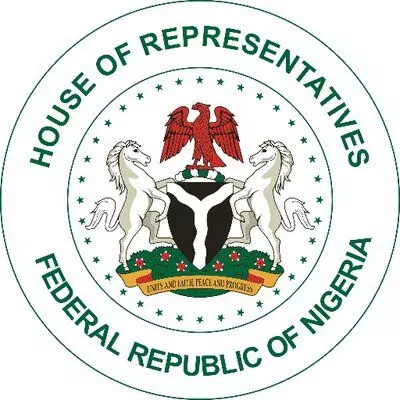
A Bill for an Act to repeal the Quarantine Act, and enact the Control of Infectious Diseases bill, has passed a second reading in the House of Representatives. The bill which was sponsored by the Speaker of the House, Femi Gbajabiamila seeks to empower the Nigerian Centre for Disease Control (NCDC) and make it more […]

A Bill for an Act to repeal the Quarantine Act, and enact the Control of Infectious Diseases bill, has passed a second reading in the House of Representatives.
The bill which was sponsored by the Speaker of the House, Femi Gbajabiamila seeks to empower the Nigerian Centre for Disease Control (NCDC) and make it more proactive.
Leading the debate, Gbajabiamila said that the (NCDC) had very little powers to carry out its mandate even though it is a body with great professionals.
Gbajabiamila said that the Control of Infectious Diseases bill, sought to empower the NCDC to make it more proactive and not just reactive and function when there is an outbreak.
He said when the bill is signed and becomes law, the NCDC will be empowered and may administer necessary vaccines to curb the spread of pandemics.
The lawmaker said that the bill also seeks to make provisions relating to quarantine and make regulations for preventing the introduction and spreading of infectious diseases in Nigeria.
Gbajabiamila said that Quarantine Act which had existed for many years, was now ‘primitive and weak’ to meet the current demands.
He said that it took the COVID-19 pandemic to realiase the weakness of the Quarantine Act, saying that the Control of Infectious Diseases bill would replace the old provisions with modern ones.
The lawmaker said that the Quarantine Act provided a penalty of N500 for defaulters, but the Control of Infectious Diseases bill was proposing a penalty of between N200, 000 and N5 million.
According to Gbajabiamila, the Infectious Diseases bill also seeks to empower the President and the Minister of Health to exercise certain necessary powers at first instance, during any outbreak.
The lawmaker, however, said that at second and third instances, the President would have to seek the approval of the National Assembly.
The speaker urged members to pass the bill for second and third reading and seek concurrence from the Senate before it was sent to the president for assent.
Another member of the House, Nicholas Ossai (PDP-Delta) said that he had looked at the bill and that it was more democratic that the Quarantine Act.
He called on members of the house to support the speaker and to pass the bill with the speed of light.
However, some lawmakers were not comfortable with the speed at which the Speaker of the House wanted the bill to be passed.
Chris Azugbogu (PDP- Anambra), said that the Quarantine Act does not only involved human but animals.
He noted as well, that there was need to carry all relevant institutions along to ensure maximum productivity.
Rep. Sergius Ogun (PDP-Edo) said that there was need to be very careful with the powers that would be conferred on NCDC to administer vaccines.
According to him, rather than pass the bill and send it to the Senate for concurrence, it should be sent to the relevant committee for more work to be done on it.
Also, Rep. Bamidele Salam (PDP-Osun) said that pandemic times such as this, offered an opportunity for all to critically look into procedures and processes of doing things.
Salam said that the bill which was supposed to have been circulated among members ahead of debate in line with the procedures of the house, had not been given to him.
“I have not seen the bill and I have asked some colleagues around here and they do not have either.
“I do not know if the bill compels states to establish centers for emergencies, I do not know if the bill makes it compulsory for palliatives measures under such circumstance.
“ I suggest this bill is stepped down and distributed to all members to give us the opportunity to look at it very well,’’ he said.
Rep. Nkem Abonta (PDP-Abia) said that he had only seen the title of the bill but had not seen the bill itself.
Abonta expressed fear that the vaccination may be made compulsory giving the conspiracy theories all over social media on vaccination.
He said if the house was to do away with Public Hearing on the bill which is an integral part of lawmaking, there was need for time for members to critically look at it, before it is passed.
“We need to see all the details and make sure we do not create another problem when the bill is passed into law,’’ Abonta said.
The contributions of Abonta and Ogun, attracted a round of applause from some members of the house even though applause was not encouraged in the chambers.
Responding, Gbajabiamila appologised to members over his failure to circulate the bill properly, blaming it on the emergency situation in the country.
He argued that this was not going to be the first time a bill would be passed on the floor of the house, without proper circulation ahead of debate.
Gbajabiamila also argued that Public Hearing was not an integral part of lawmaking, saying that not all bills that had been passed by the house went through public hearings.
The speaker urged the house to pass the bill for second and third reading and transmit it to the Senate for concurrence.
When the Deputy Speaker, Rep. Ahmed Wase put the matter to vote, most members voted against it but he ruled that the bill be passed for second reading.
However, when it was time for consideration of the bill at the Committee of the Whole before it was passed for third reading, Gbajabiamila said that it should be stepped down to Tuesday, June 4, to enable members go through the bill.




